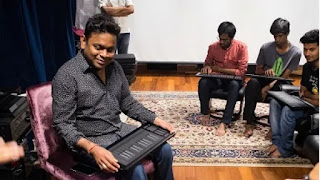Many elderly patients think that their bad knees would eventually force them
into a wheel chair for life! Not so! Modern medical science can put most of
them back on their feet, says Dr Bharani Kumar, a bones’ specialist and
surgeon from Chennai, India.
One of his patients, Surojeet Chatterji, even went on to climb a mountain after
being treated for his failed knees!
Surojeet, an acclaimed pianist, had long wanted to visit the Machu Picchu
heritage site, located at 7000 ft in the Andes Mountain, Peru, South America.
He had, however, abandoned the idea after he injured his knees while out on
a jog in the US. For five years he lived in unforgiving pain. He could not even
bear the thought of climbing a staircase, let alone scale a mountain.
Things, however, changed soon after he came to India to work as a professor
of piano at music composer AR Rehman’s school in Chennai! At the city’s
Apollo Hospital, he met Dr Bharani, who operated on him and replaced his
damaged knees with a pair of artificial ones.
Another of Dr Bharani’s patients, Vijayalakshmi Ashok, had had a similar
account. She was, in some sense, worse off than Surojeet. Besides her
damaged knees, she was also suffering from rheumatoid arthritis, a condition
that causes the deformity of joints. Her husband says she could hardly steer a
step; she was in such agony!
Eventually, she too had her knees replaced!
Surojeet and Vijayalakshmi are among the 120,000 people who go for knee
replacement surgeries every year in India.
Most of the cases, come out good, given that India has some of the finest
pool of bone specialists and surgeons in the world!
The significance of the doctor is highlighted by Surojeet. He recalls Dr
Bharani telling him that not all patients qualify for a knee replacement surgery.
Some are better off with more conventional treatment forms. It is just how a
competent doctor assess and evaluates a patient!
In fact, Dr Bharani did not see Surojeet as a candidate for
knee replacement,
the first time they had met. It was only after the latter agreed to the rigorous
conditions of post surgery and long-term care that the doctor decided to go
for it.
“Body implants, whether screws, plates and knees caps, usually last for 10
years. Unless the owner is prepared to commit to the extra-ordinary and longterm conditions of care in the use of the new parts, it could mean another
round of replacement surgery for the patient concerned” says Dr Bharani.
“Surojeet was 65 years when he came to me. Ordinarily, knee replacement
for him meant he would have had go under the knife again at 75.”
Knee replacement surgery is never easy on a patient. One, it can be
expensive if he is not insured. Two, it entails months of painstaking and
relentless sessions at the physiotherapist’s.
Surojeet says he spent 7 to 8 days at the hospital following the 3 hours of
surgery. He spent another three month following up with his physiotherapist.
Unlike Surojeet, Vijayalakshmi was a “copybook case for knee replacement”.
Though only 50 when she met Dr Bharani, she was in a bad shape. The
erosion of her knee had been compounded by rheumatoid arthritis. She was
in severe pain and much discomfort, and her life was being wasted confined
to the nooks of her house.
Happily, for both Vijayalakshmi and Surojeet, the outcomes have been more
than good! Both are now walking fine; both have got back to living their
respective lives!
Needless to say, they think highly of Dr Bharani and his work. Surojeet
describes him as humble, sensitive, understated and highly skilled —
qualities that Surojeet thinks should be the standard for all doctors who watch
out for their patients! In fact, Surojeet says his friends in the US who see him
walk and go about his life, maintain that such good results cannot be
achieved even there.







